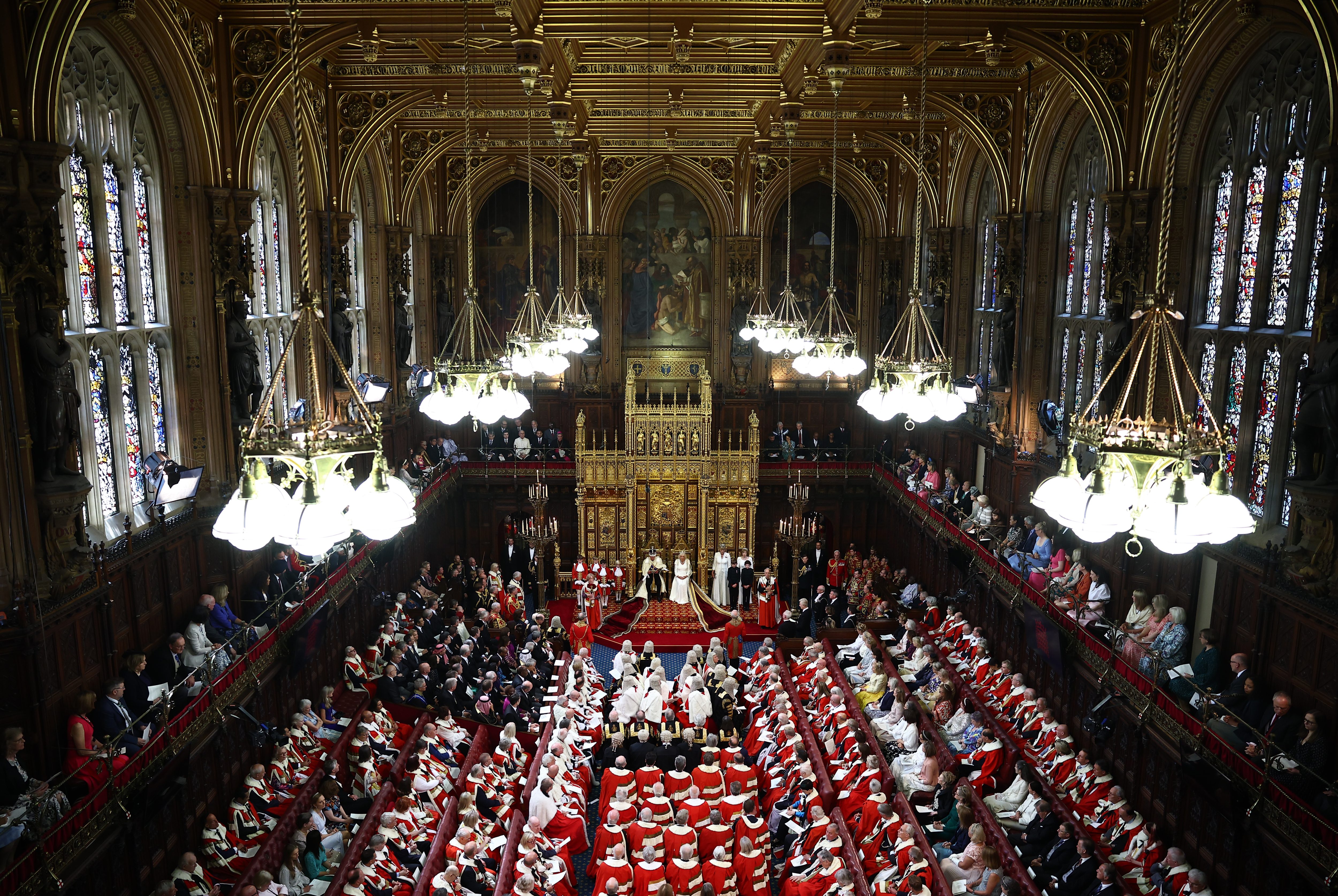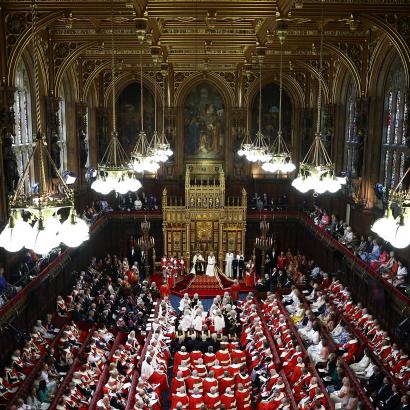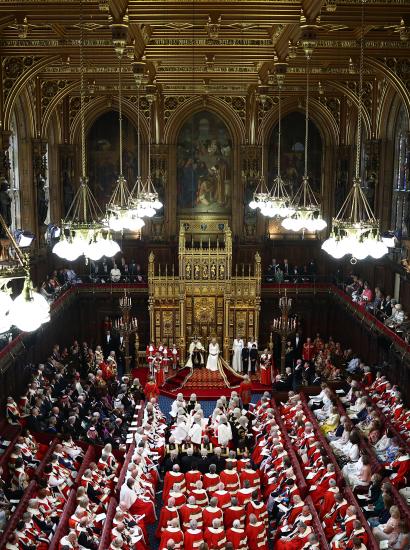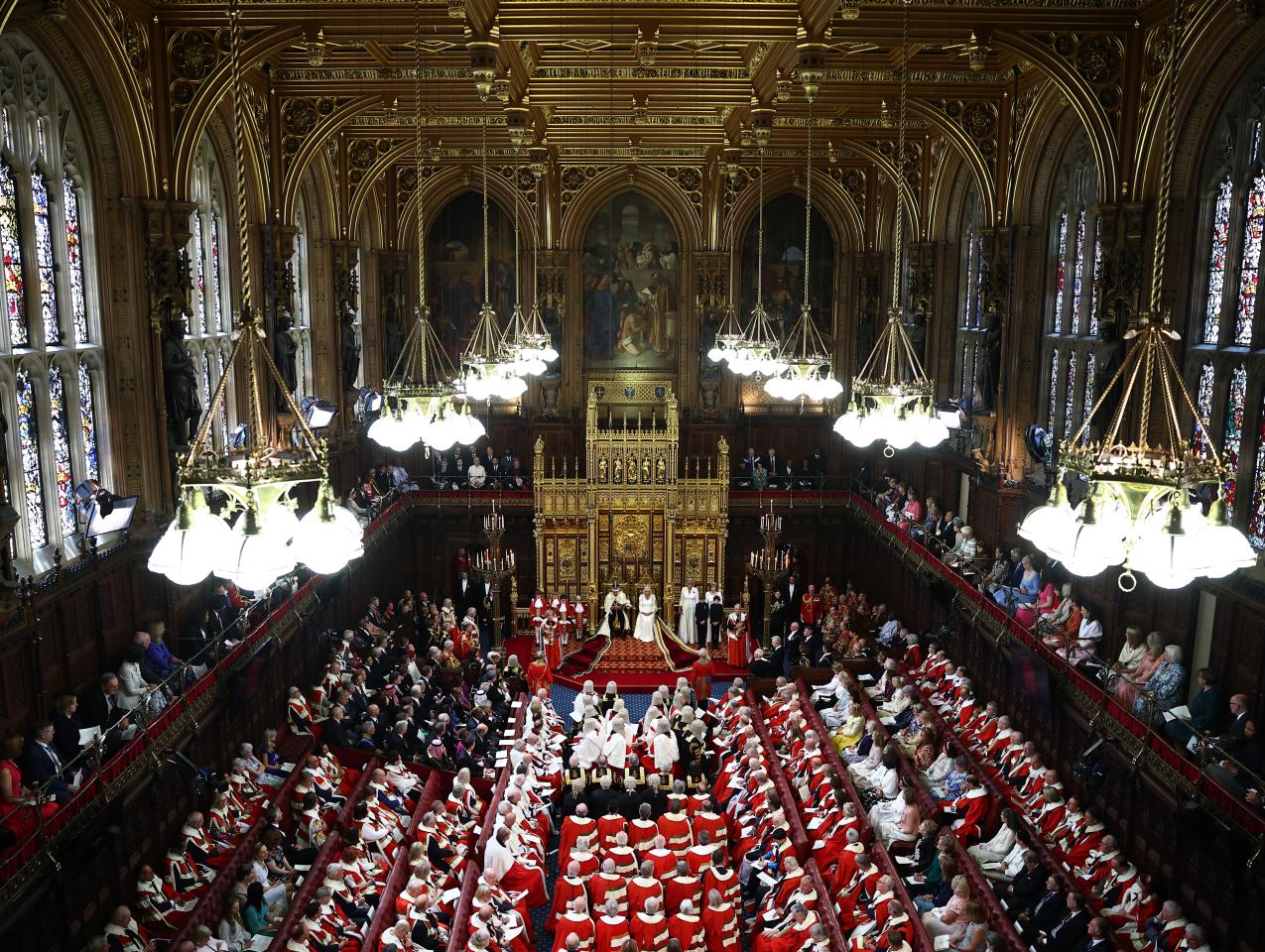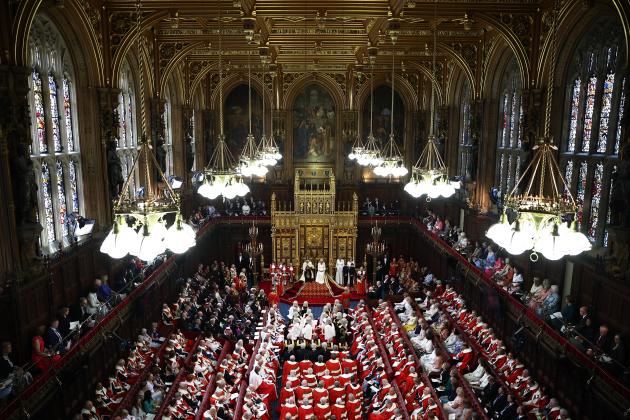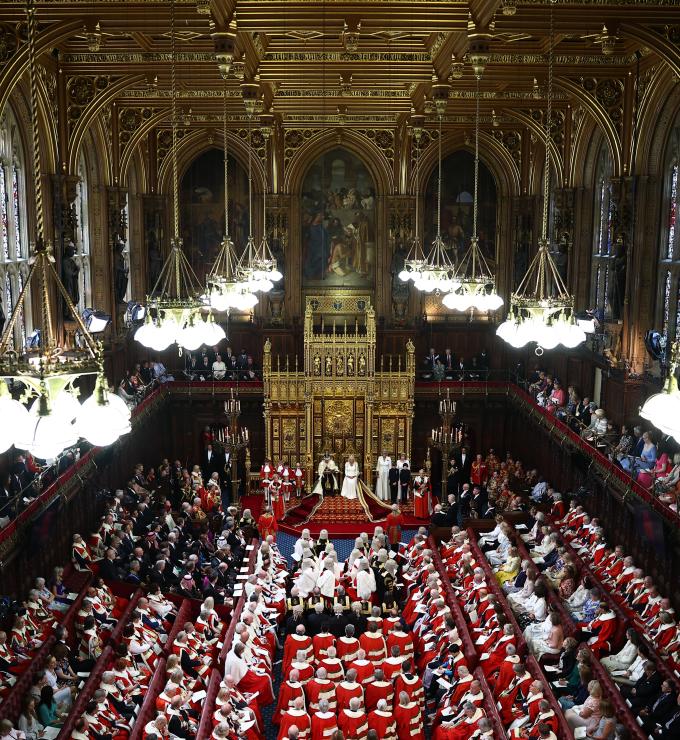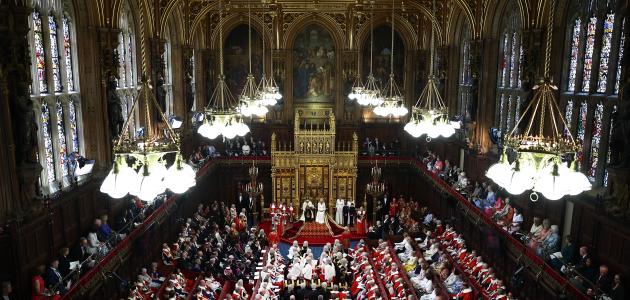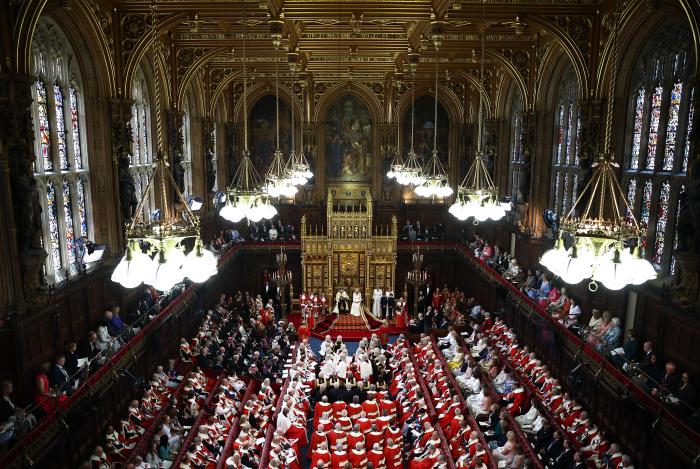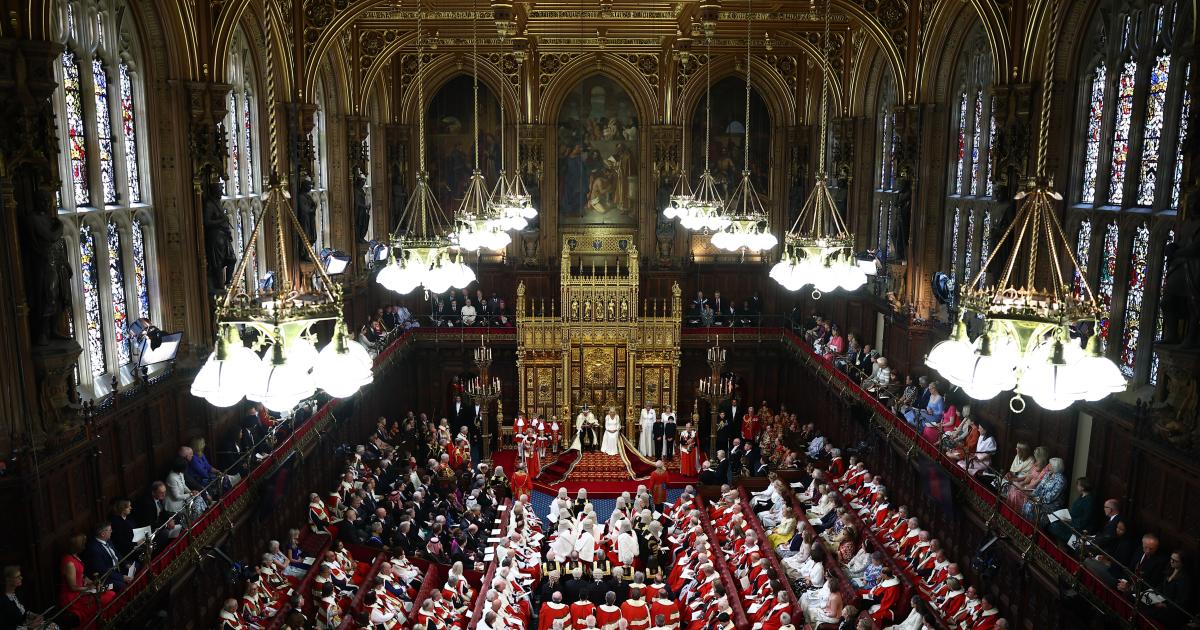- Politics, Institutions, and Public Opinion
- Comparative Politics
David L. Leal is a senior fellow (adjunct) at the Hoover Institution and participates in Hoover’s Center for Revitalizing American Institutions. A professor of government at the University of Texas at Austin, where his classes include British politics and government, he also explores the political and policy implications of demographic change in the United States.
Britain is heading for a fiscal crisis, facing threats from abroad, and roiled by all manner of political controversies, but the Labour government of Keir Starmer is nevertheless finding time to weaken the capacity of Parliament’s second chamber, the House of Lords.
As promised during last year’s election campaign, the government introduced legislation to expel the remaining aristocrats, known as hereditary peers, from the chamber. While this might not appear overly controversial, the homogenization of the chamber will impair Parliament’s ability to meet complex policy challenges that can no longer be ignored.
Removing the “hereditaries” will also provide no clear benefits to the chamber. The self-declared modernizers make claims that are rooted in abstractions, while the stick-in-the-mud defenders of tradition turn out to be grounded in contemporary practicalities. While supporters of expulsion claim the hereditary peers are “undemocratic,” opponents detect “the whiff of class warfare” advanced by “those who have borne a grudge against the Lords for the last one hundred years.”
Who are the Lords?
The Parliament of the United Kingdom has two chambers: the House of Commons (lower chamber) and the House of Lords (upper chamber). The former consists of 650 members of Parliament (MPs), who are elected in a manner similar to that of representatives in the US House of Representatives.
The members of the House of Lords, by contrast, are not elected. In the Peerage of the United Kingdom are two groups: those who inherited their aristocratic titles (hereditary peers) and those who received a lifetime and non-hereditary title, technically from the monarch but actually from the prime minister (life peers). About 10 percent of the former, and all of the latter, are members of the House of Lords. They are collectively known as the “Lords Temporal,” in contrast to the “Lords Spiritual,” who are bishops in the Church of England. The total number of chamber members is not fixed and is currently 835, with 725 life peers, 86 hereditary peers, and 24 Lords Spiritual.
A longstanding controversy is who should be a member of the Lords and how they should be chosen. This is politically charged because a reform that strengthens the Lords may serve to weaken the Commons, and therefore the prime minister, who leads the dominant party in the lower chamber. Due to this tension, while comprehensive reform is sometimes promised, none has been enacted to date.
In the postwar period, Lords membership was revised by two laws. The Life Peerages Act (1958) created the life peers; before that date, all peers were either hereditary aristocrats, bishops, or the “Law Lords” (now in a separate Supreme Court). This was enacted by a Conservative government as a way to stave off more radical reform. Since then, almost all new appointments to the House of Lords have come through this route.
In 1999, Tony Blair’s House of Lords Act expelled all but ninety-two of the approximately eight hundred hereditaries. This was a compromise, with Blair envisioning it as the first stage of eventual total excision. However, the Commons in 2003 rejected reform options ranging from an entirely appointed to an entirely elected chamber, and so the matter rested until now.
Westminster’s loss
The House of Lords (Hereditary Peers) Bill, which is now wending its way through Parliament, would expel the last of the hereditaries. This will unfortunately reduce the collective experience, knowledge, and wisdom of the chamber while providing no meaningful benefits.
From a distance, this may seem like a small, and perhaps overdue, reform. The very name House of Lords suggests something archaic and esoteric, of little relevance to a modern democracy, and perhaps a luxury that Britain can do without. One can understand how Americans might see the scarlet robes, the ancient traditions, and the gilded throne and misunderstand the chamber’s essential role in making democracy work, and how the hereditary peers contribute to it. For the British to do so is just a little exasperating.
The fact that the victims are all aristocrats should not qualify our regret at their political guillotining. As thinkers from Edmund Burke to P. J. O’Rourke have noted, the French Revolution did not turn out so well, and neither will removing legislators whose only crime is their ancestry.
While some hereditary peerages have a long pedigree, earned on historic battlefields or elsewhere, many titles were created in the twentieth century. One might expect that all peers resemble P.G. Wodehouse’s Bertie Wooster, but their role in Parliament is more reminiscent of Jeeves, the valet who often pulled his employer out of the soup. The Commons routinely approves slapdash legislation and then sends it to the Lords, which scrutinizes and improves it through careful reading, unlimited debate, and constructive amendments. The hereditary lords, with their unique backgrounds and experiences, contribute to this process of review and revision, thereby improving the quality of British laws.
Those of us who care not only about tradition but also about the effective functioning of government must sit back and watch this act of national self-harm. Even more vexing is that this is an own goal, not a policy forced on the nation by EU bureaucrats, the bond markets, or the Trump administration.
But maybe President Trump could hint at additional tariffs unless Britain puts a stop to what many consider “constitutional vandalism.”
What does the House of Lords do?
In America, millions of children learned about the legislative process through the Schoolhouse Rock cartoon. A British equivalent would need to note that while Parliament is bicameral, as is the US Congress, its two chambers are very different. Rather than co-equals, the Commons is far more powerful than the Lords, although the latter has evolved to play a constructive role.
This relationship has sometimes been difficult. In the nineteenth and early twentieth centuries, a Tory-dominated Lords served as an obstacle to the emerging labor movement and to the social welfare legislation sought by the Liberal and Labour parties. Over a century later, Labour reformers are harking back to such ancient class battles when they seek to sock it to the Lords, and specifically its Tory aristocrats.
The chamber’s veto power was circumscribed by the Parliament Act (1911); no longer could the Lords stop budget bills, and its influence over other legislation was replaced by the power of delay. After midcentury, the Salisbury Convention meant that government bills mentioned in the party’s election manifesto would not be rejected by the Lords.
Today, the key power of the Lords is to scrutinize bills from the Commons. While the chamber will on rare occasion originate consequential legislation, and may play “parliamentary ping pong” to delay or even defeat some government bills (typically on principled, not partisan, grounds), it generally seeks a complementary role, not one of institutional competition. Philip Norton, both professor and life peer, observed that “Good law is a public good. The House of Lords contributes to good law by focusing on its key task of detailed legislative scrutiny. It fulfils that task well because it is a House primarily of experience and expertise.”
The members do so as part-timers who do not draw a salary but can receive an attendance allowance and some travel expenses. Because they are in office for life, they are not professional politicians under the thumb of the parties. They do not need to be re-elected by a constituency or re-selected by a party. The threat to “withdraw the whip” (i.e. kick a legislator out of a parliamentary party) therefore has little power.
According to Andrew Roberts, both historian and life peer, “There is no shouting, no grandstanding, there are no cheap political points being made. The vital job of revising the often knee-jerk and ill-thought-through legislation sent from the Commons is carried out in an atmosphere of seriousness, rationality, courteous open debate, and reason.” Could such an atmosphere reflect the influence of the hereditaries? An essay in The Critic noted their “lifetime of preparation both morally and temporally” as well as their “feeling a keen stake in the place and governance of the land.”
“Irrational” yet worthy
This new and helpful Lords role in the legislative process was not the intentional result of any plan. In the classic way that Britain’s “unwritten” and “ambiguous” constitution “has grown organically in response to economic, political, and social changes,” so did the Lords move from an almost co-equal chamber to a scrutinizing and revising body. In America, to change the power of the Senate would require a constitutional amendment, approved by two-thirds of the US House and Senate and three-fourths of the state legislatures. In Britain, it just happened.
As an essay in The Spectator noted about the hereditaries, “Their presence as legislators may not be ‘rational,’ but everything about our constitution is gloriously irrational.”
Next: Does Britain still need hereditary peers?







